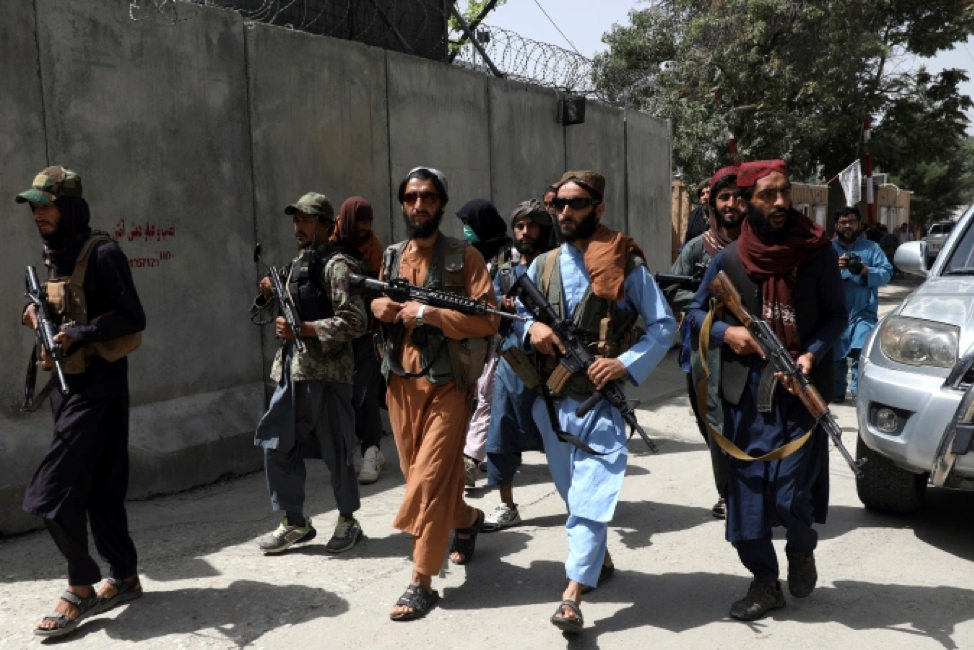In recent weeks in Afghanistan, the Taliban has physically attacked journalists, raided homes, and forced female state TV anchors off the air. As they seek safety, Afghan journalists fear for their lives, going into hiding and deleting their social media presences to avoid being targeted.
Since the Taliban took control of Afghanistan this month, CPJ has registered and vetted the cases of nearly 400 journalists in need of evacuation, and is reviewing thousands of additional requests. CPJ and more than 50 other civil society organizations called on G-7 countries to protect and evacuate journalists and media workers in Afghanistan and called for the U.S. and allies to remain in Kabul beyond the August 31 deadline for U.S. troop withdrawal.
Global press freedom updates
- Taliban fighters beat and whip journalists in Afghanistan
- Chinese journalist Zhang Zhan hospitalized after her health declines in prison
- Chinese authorities detain and indict 11 for contributing to The Epoch Times
- Mexican journalist Jacinto Romero shot and killed in Veracruz. Separately, Mexican reporter Maria Teresa Montaño abducted, robbed, and threatened
- Daphne Caruana Galizia’s family spoke to CPJ about protecting journalists in Malta
- Turkish journalist Aydın Taş found dead in Ankara
- Journalists Htet Htet Khine and Sithu Aung Myint arrested in Myanmar
- Russian authorities add Dozhd, IStories to ‘foreign agents’ register
- Sri Lanka police repeatedly interrogate journalist Punniyamoorthy Sasikaran
- Cuba passes regulations criminalizing online content
- CPJ joins organizations in calling on international groups to address press freedom in Nicaragua
- CPJ issues statement on U.S. Justice Department decision to prosecute assaults on journalists during the U.S. Capitol riots
Friday will mark three years since Kashmir Narrator journalist Aasif Sultan was formally arrested, followed by bogus anti-state charges. He has been denied due process, subject to delay after court delay, and now faces the threat of COVID-19 behind bars. Sultan should never have been behind bars to begin with. Join us in calling to #FreeAasifSultan.
In other grim milestones, American journalist Danny Fenster will have been imprisoned in Myanmar for 100 days on August 31, one of the dozens of journalists arrested in Myanmar by military authorities since the February coup. Add your voice and sign this petition to help #BringDannyHome.
A closer look | CPJ’s most-read features in August
- ‘Complex, fast changing, and extraordinarily dangerous’: PBS’ Jane Ferguson on the ground in Kabul — Steven Butler/CPJ Asia Program Coordinator
- Afghan female journalist: I may not be alive by the time US can evacuate me — Naomi Zeveloff/CPJ Features Editor
- Iranian journalists remain vulnerable in exile, says formerly imprisoned columnist Nejat Bahrami — CPJ Middle East and North Africa Program
- Former Capital Gazette editor on justice and healing after worst newsroom shooting in U.S. history — Katherine Jacobsen/CPJ U.S. and Canada Program Coordinator
- David Kaye on the Pegasus Project and why surveillance reform should reach beyond NSO Group and Israel — Madeline Earp/CPJ Consultant Technology Editor
- Reuters photographer was killed after being left behind in retreat, Afghan general says — Stephen Grey, Charlotte Greenfield, Devjyot Ghoshal, Alasdair Pal, and Reade Levinson, Reuters
- The story behind the world’s longest detained journalist held 20 years without trial — Mildred Europa Taylor, Face2Face Africa
- Killing the story: How the Kashmiri press was silenced after the region lost autonomy — Ipsita Chakravarty, Reuters Institute for Journalism
